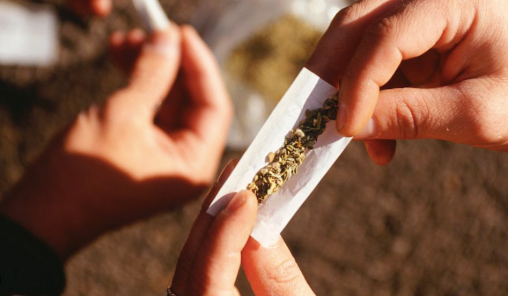In a country as young as India—where over 65% of the population is under 35—youth should symbolize energy, innovation, and the bright future of a nation. Intoxication is the problem.
Yet, for many, this phase of life turns into a desperate chase for survival, acceptance, and shortcuts to success. When jobs are scarce, dreams are expensive, and role models are replaced by influencers flaunting luxury, many young minds begin to believe that “easy money” is not just possible, but necessary. This is how the dangerous path of drug dealing becomes an illusion of hope.
The Rise of the Young Dealers
Meet Aditya. He’s 22, an engineering student, with dreams typical of his generation—an iPhone, a Bullet motorcycle, and a trip to Goa. At home, his mother struggles with high blood pressure, and his father is jobless. College fees are overdue, phone EMIs pile up, and there’s no safety net to fall back on. One day, a college friend introduces him to a “job”—selling MDMA. The promise? ₹5000 in a single day. No resumes, no degrees, no office—just money.
Tempted and desperate, Aditya agrees. In his mind, it’s temporary. In reality, it’s the beginning of a nightmare.
When Dreams Turn Toxic
India’s National Crime Records Bureau (NCRB) reports a disturbing trend: a sharp rise in drug-related offenses among young men aged 18 to 25. Police reports from cities like Kochi suggest that nearly 60% of those arrested in drug cases are college students. Most of them are lured into the trade with two things—money and misdirected dreams.
The problem isn’t limited to the act of selling drugs. Many young dealers eventually become users themselves. What starts as a source of income quickly becomes a trap. They begin to depend on the very poison they peddle. In trying to fund their aspirations, they end up eroding their future.
A Symptom of a Larger Problem
We often ask: Is the dealer to blame? Or is it the system that failed them?
Youth today are growing up in an environment that emphasizes performance over patience, status over substance, and consumption over character. They are taught to score marks, follow trends, and upgrade constantly—phones, lifestyles, ambitions. But nobody teaches them how to struggle with dignity, to persevere without shortcuts, or to live with less while dreaming of more.
Young men like Sameer—middle-class, hard-working, and helpless—sometimes turn to selling drugs to pay for a parent’s medical bills. Society may call them criminals, but their actions are often rooted in desperation, not evil.
The Size of the Crisis
India’s drug crisis is massive. Over 250 million Indians have tried some form of narcotics. Around 20 million inject drugs, risking HIV and other serious infections. The drug market in India is estimated to be worth over ₹1 lakh crore annually. But the real cost? It’s paid in shattered dreams, broken families, and a generation slowly drifting into darkness.
Why It Matters
This issue isn’t just about crime or addiction. It’s about lost potential. Every young person drawn into this trade is someone who could have been a builder of the nation—a teacher, engineer, artist, or entrepreneur. Instead, they become part of a black market that feeds off their vulnerability.
What’s worse, many of them go unnoticed. They aren’t wearing tattered clothes or sleeping on sidewalks. They are in your classrooms, your metros, your hostels. Smiling on Instagram, and suffering in silence.
The Way Forward
There is no magic wand to fix this. But there is a solution—and it starts with awareness, empathy, and systemic change.
- Education needs reform: Not just in curriculum, but in values. Teach students financial literacy, mental resilience, and the dangers of easy money.
- Parents and teachers need to talk: Conversations about drugs, peer pressure, and emotional health should not be taboo.
- Society must shift its mindset: Stop glorifying luxury lifestyles and start recognizing the dignity of struggle.
- Law enforcement must focus on rehabilitation: Not just punishment. Many young offenders need guidance, not jail time.
A Message to the Youth
If you’re young and reading this, know this: Quick money isn’t wealth, it’s debt in disguise. Sooner or later, it will come knocking—with interest.
The job you take today, the choices you make—determine not just your income, but your integrity. There is pride in patience. There is beauty in struggle. And there is always a better way.
Let us not allow the fire of our youth to be extinguished in the smoke of narcotics. Let’s ensure our dreams are earned, not sold.
Because the future of a nation is not built in drug dens—but in the hearts and hopes of its young citizens.
Keep Reading Foramz for your daily dose of moral support. Listen this blog on our podcast channel Social Republic.


Leave a Reply